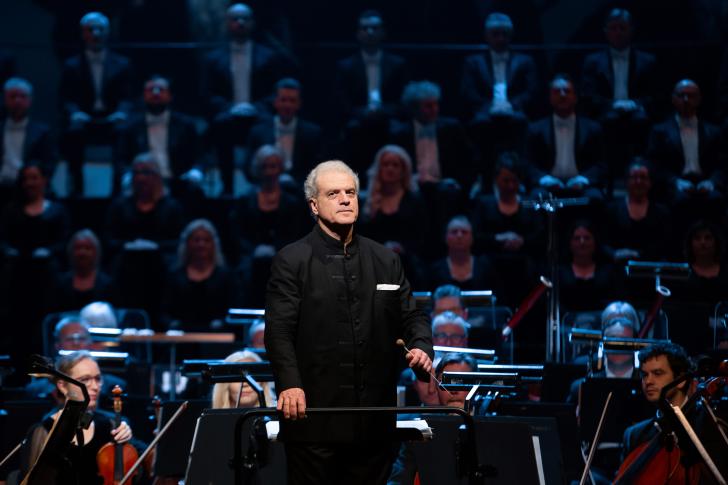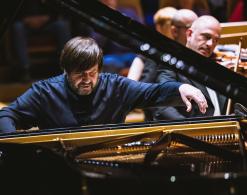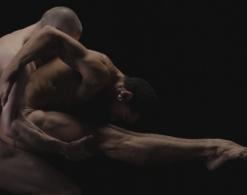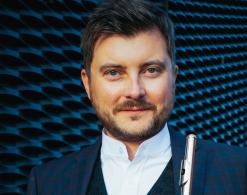Patrick Fournillier: "Conducting is art of communication"
In this interview we get to know Patrick Fournillier, the Music Director of The Grand Theatre – National Opera in Warsaw. In conversation with Igor Torbicki, Maestro reflects on the Grzegorz Fitelberg International Competition for Conductors, French operatic repertoire, and the art of conducting.
Maestro, it’s a great pleasure to talk to you. Right now, you’re in the heart of Polish musical world – not only in National Opera, but also Fitelberg Competition for conductors, where you were in the Jury.
I’ve read the rules of that competition. I have to say that they are intense. In the first round, candidates had to prepare a programme consisting of two pieces, and their time with the orchestra was pretty limited. That’s why I’m curious about your thoughts on the participants’ perspective – what, in your opinion, can be done with music in just 30 minutes?
Patrick Fournillier: Excellent question. To answer it, I have to tell you about some general things regarding the Competition.
The Grzegorz Fitelberg International Competition for Conductors is one of the most important conducting competitions in the world. For me, it’s the “competition of competitions”, because to qualify there, you need to already be a developed conductor. We had 275 applications and only 50 top candidates were selected. The competition programme was enormous and demanding. For all of the Competition, each candidate had to prepare 12 works in various styles and forms.
This short span, 30 minutes, is not just about the music. During the first stage, candidates had to show who they are. Not particularly to the jury, but to the orchestra. They have to manage it, keep its attention, the concentration of all its musicians. They have to affirm their musical personality, give a real direction to a music piece. Some of them were not able to fix that direction, they were just conducting without any particular characteristics. Others, and we could see it immediately, had different way of working with Mozart, Haydn or Beethoven.
Of course, we, as members of the Jury, could personally not agree with some interpretations. But despite that, an interpretation with which we did not agree, could be logical, well structured, organic. For me, that’s enough to appreciate and recognize it.
In order to hear the details properly, the acoustics of the hall has to allow it. Did it help the participants?
Silesian Philharmonic has an excellent hall with good acoustics, but also loud. Even the quietest pianissimos could be very well heard. This created some challenges for participants. It was difficult for them to find the right balance. Some instruments, like the first clarinet or bassoon, were too quiet from conductor’s perspective, but loud in the audience.
So it was an additional problem for the participants to solve.
As jury, we had to consider it. But also to remember what the nature of the hall is, to distinguish between what the candidate asked from the orchestra and what we were hearing.
So, in Poland we have the Fitelberg Competition, with all these details and requirements that we are talking about now. But there is Fitelberg Competition, and there is Grzegorz Fitelberg. Was he an internationally recognized figure? Is remembered now? After all, he had some very interesting collaborations, like that one with Igor Stravinsky’s opera Mavra in Paris in 1922.
That’s correct. Unfortunately, many of Fitelberg’s performances happened before the era of recordings. From what I know, he was and is quite well known in Europe as a figure, especially in France and England. In Paris and London, the name Fitelberg meant a lot.
A general question. Do you think that a competition is a good way to start a conductor’s career?
Definitely.
It’s very difficult to become a conductor, especially if you are a young person. The reason is simple – young conductors, in most cases, don’t have an orchestra to work with. And a conductor without orchestra is like a pianist without the piano. The orchestra is his instrument.
An orchestral performance costs lot of money. It’s also a lot of organization and responsibility. That’s why we have conducting competitions – so that the candidates prepare big repertoires, face the orchestra, and have the possibility to practice.
But it’s not the only way. The starting points for young people differ in many places. In some European countries, there are possibilities for them to work with professional or youth orchestras. When I was working in Finland, being the director of Finnish National Opera and Ballet, I’ve noticed that many professional orchestras were conducted by very young artists.
I suspect that in Northern Europe there’s a lot of residency programs for conductors.
Correct. It's exactly the same in some countries outside of Europe, like Venezuela or in Colombia. The situation is worse in Southern Europe, where there is not a lot of possibilities for young conductors to have an instrument.
And in their case, competitions are the best solution.
Absolutely. Now, let’s take a look at Asia: Korea, Japan, and the most important scene – China. I would say that all of the professional orchestras there have some conducting sessions for students. A part of their rehearsals is dedicated to young people.
I will give you an example. Chinese participants came to the Fitelberg Competition. I noticed that they were very well prepared technically, a lot better than candidates from many other regions of the world. I spoke with them. They told me that their repertoire in its entirety was prepared and practiced with professional orchestras. It was just incredible…
That requires a lot of resource, which China doesn’t lack.
Yeah. It's exactly like to offer a violin to a future violinist. It’s good practice.
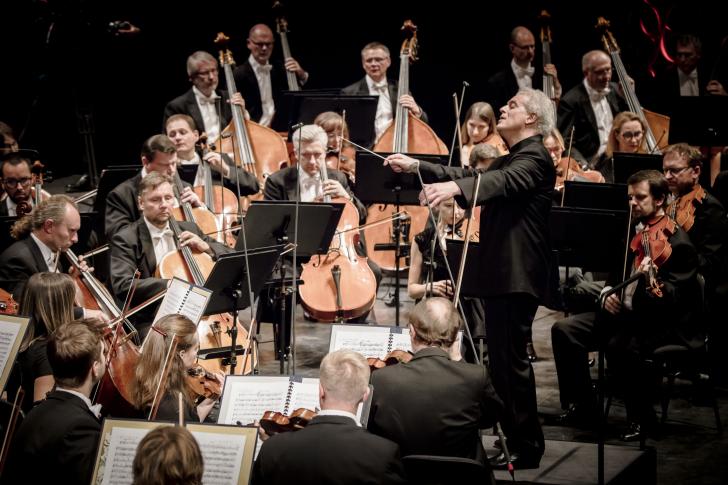
I feel that this way of providing the young conductors working possibilities is only starting in Poland.
There are many angles to this. Here in Warsaw, there is a good conducting department. Sometimes, I do masterclasses for them. They provide conductors a small ensemble of around 15 musicians for practicing Schubert or Beethoven, but only from time to time. That’s a good start, but it could be so much more…
Again, it’s a question of resource.
I remember walking for the first time into the building of Saint Petersburg Conservatory – I was studying there. And I heard a fragment of second part of Shostakovich’s Symphony no. 8. Next day, I walk in, and there were playing again – this time Anton Bruckner’s Symphony no. 4. It was far from perfect, but I wondered: what programme is that orchestra preparing, for some kind of festival? Later I learned that a group of students was playing fragments of important symphonic music for conducting students to practice.
That’s just fantastic. It’s exactly what many conductors would dream of. And possibilities of working with other people, with orchestras, are fundamental. Conducting is the art of communication. It has specific characteristics which differ a lot from instrumental playing practice.
I believe that conducting does not have one specific technique for everybody to follow. If you compare performances of the same symphony by many great artists – Karajan, Kleiber, Abbado, Muti, Bernstein and others – they have their own individual methods. Technique is secondary, personality is primary. It’s a question of who you are inside, your inner life, and ability to communicate with musicians.
I believe this differs much from the instrumental playing. Let’s take violin as an example. If you’re a keen listener, sometimes you could tell if a violinist is from Russia, Belgium, Italy or France. There are specific technical traditions developed in some regions, which can affect how somebody plays. I think we cannot say such a thing about conducting, where personality is fundamental, not the technique.
Personality of a conductor also reflects a lot in their repertoire choices. In your case, we are also talking about a very important institution: The Grand Theatre – National Opera in Warsaw. What do you think about previous productions? What did you change when you became the musical director?
Well, the situation here is interesting. A lot of Italian, German and Polish works. Before the Russian invasion of Ukraine, there was Russian repertoire: Mussorgsky, Tchaikovsky, Prokofiev.
I know the Theatre from 2010, and I got surprised when I learned that so little of French repertoire was played here. When I became the musical director, I asked the staff about performances of French works. The answer was: well, we have only Carmen. And Gounod’s Faust, but a long time ago. So, not a lot.
That’s ironic, especially because you’re a specialist of French music.
Yes. And I started to do more of French repertoire here. We performed Pelléas et Mélisande, Werther, Médée, and will perform Roméo et Juliette, Dialogues des Carmélites, Don Quichotte, Cendrillon, Les Pêcheurs de perles… It’s a very important part of musical history. I don’t complain about Verdi, Puccini, Mozart or Beethoven’s Fidelio. These works are fantastic and should be played. But we need the French composers as well.
Maybe some people were afraid that the French repertoire would not attract as many listeners as German, Italian or Polish works, and that’s why it was not performed. I suggested the opposite: that we have to propose something unknown in a good way, prepare it well, and then the audience will decide if we’re right or not. The results were as follows. Pelleas et Melisande – sold out. Werther – sold out. And just before the last performance of Medee, people were standing next to the Theater with posters saying they will buy a ticket. Every seat was sold.
Which means you were right all along. But this is the surface of conductor’s work. I’m also interested in some details.
I always imagined conducting as a very personal experience. A conductor is a human being, just like everybody else, with his own set of opinions, worldview, virtues and flaws. Sometimes, that fact can influence their musical work. A recent example of that is the case of Alberto Veronesi, an Italian conductor, who performed Puccini’s La Boheme with his eyes blindfolded. He explained that he could not agree with stage director Christophe Grayal, who decided to set La Boheme’s events in the year 1968 – a time of widespread, leftist political protests.
Have you ever had a situation in which you didn't agree with the scenography? How do you think such conflicts should be resolved?
I think that for the last 20 or 30 years, we have had a kind of conflict between stage directors and conductors in general. There are many reasons for that. First of all, the way of perceiving is changing. Modern opera audiences are sometimes more interested in what they see than what they hear. That’s why there are tensions among people involved in opera performances.
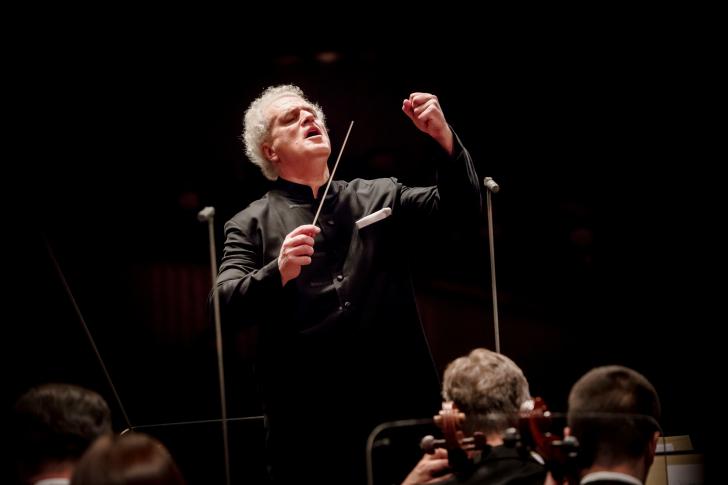
So it’s an anti-wagnerian shift in modern opera? In his philosophy, music in opera was absolutely fundamental.
It’s possible. For me, it's a wrong conflict. It's just unwise to create contradictions between the ear and the eye. Music and visuals must be complementary. Stage directors and conductors have to work together closely. As a conductor, I do not prioritize the music or the visual content – I treat them equally.
I’m against putting the eye before the ear. Opera is not cinema or television. It’s written by composers. And let’s not forget that we can do an opera in concert, non-stage version with beautiful emotion, but not the opposite. We can't present it without music.
It would become theatre.
Or cinema, there are some movies without music.
The fundamental thing is that opera without music is impossible. By telling that I don’t mean that music has priority over anything. What I mean is that music needs production on stage, and a connection with it.
Obviously, there are many conflicts despite that need of connection. One of the parties may not be flexible enough. A real disaster happens when the orchestra pit and the stage are two totally different worlds. The audience should not be forced to choose between them. A situation like that destroys the message of the opera. In that case, the audience cannot truly interpret their experience.
I suppose that during such conflicts, the conductor is on the conservative side, and the stage director is more progressive?
That's true. The conductor has to protect and respect the music, to be the composer’s butler. If, as a conductor, I read sad, dark, deep emotions in the score, and see something light and cheerful on stage, I just go to the stage Director and talk to him. It is always productive to work together! You see, I cannot just change what the composer wrote and do with the score whatever I want.
Sometimes these situations are difficult. But again, being a conductor is about communication. Not only with the orchestra, but also with all the people you’re working with. Stage directors are artists too. It’s bad for the creative process to approach the opera with fixed ideas in your head, it’s important to be open to proposals, to take other people’s opinions seriously. Especially if the score allows some flexibility. Unfortunately, it’s not always like that.
So you’re not in favor of changing the score in any way.
Not at all, not a single note! But that does not mean that I can’t be flexible, if the score allows it. I can interpret proportions, dynamics, articulation, ask the musicians to play differently than what I’ve previously imagined. In that way, I can be open to the ideas of the stage Director. It's a question of interpretation…
Since we are talking about interpretation, this is the question that bugs me often. Do you think that real interpretation and commitment can come at the same time with showmanship?
Which artist do you consider to be a showman?
My field is piano music, so I would say… Lang Lang.
Oh, I understand that. Well, I think that showmanship can be a kind of interpretation. I adore Lang Lang, and we did a lot together. For example, all of the Piano Concertos by Beethoven. He’s an incredible pianist. It’s also a fact that he’s making some show when he’s playing. But with Lang Lang, it's never just about showing off. He doesn’t have to prove anything to anybody.
I think that it’s a question of sincerity. It’s true that some of Lang Lang’s interpretations can sound very exaggerated. And I must admit that he shocked me sometimes. But after just a few moments, his big changes in dynamics and articulation always lead somewhere. He has his own vision of everything he plays, and communicates with the audience. And he certainly doesn’t lack commitment. Personally, I don’t like making a show just to tell everybody: “I’m the best!”. It has to mean something.
So, for you, showmanship can be a tool, and it must have narrative quality.
Yes.
I personally think that one of the biggest showmen in the conducting world, in a good way of course, was Leonard Bernstein. His expression, especially in Mahler…
That’s true, and he is well portrayed in the movie Maestro. Have you seen it?
Not yet.
Well, it’s a very interesting film. A part of the musical world disagrees with that portrayal, but nevertheless it’s refreshing to see a different take on Lenny. I knew him personally, and I can tell you that he never wanted to just be a showman. With every piece he conducted, he created a different world. He had a lot of energy, and that energy was authentic. It came from the pieces he worked on, not from his desire to do a show. For me, he was one of the greatest conductors in all history, probably close to Mahler himself.
Every conductor is doing a creation, rebuilding a musical piece. In that process, technique is secondary. What matters is vision, personality, creativity. And, most importantly, the final result. I intend that people leave the hall with a feeling that they’ve gained something… Some important thought, philosophic idea, or a strong emotion, which makes their inner lives richer. Being an artist is a mission of the heart, trying to help in building a better society.
And perhaps it will happen thanks to, among other things, French opera works here in Warsaw. Maestro, thank you for the opportunity to have this conversation with you.
My pleasure, thank you to you as well!
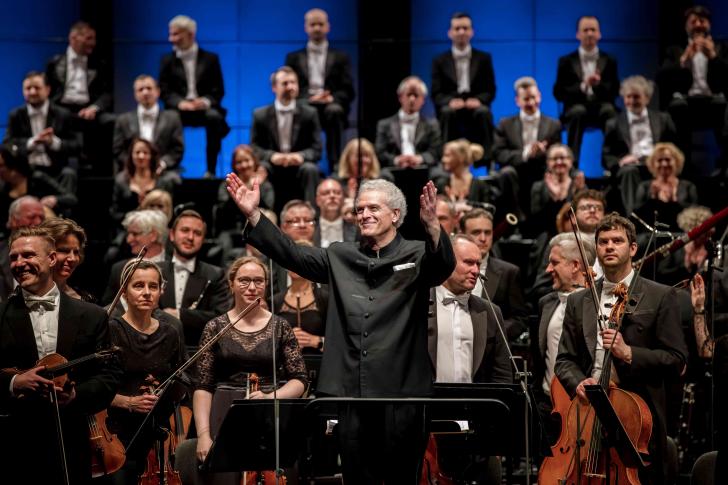
APPENDIX
Dear Maestro, sometimes I do a “blitz” with interviewed persons. Usually it’s just short questions and short answers. This time, I propose that we do a conducting “blitz”. I’m going to ask your opinions on some of the important figures in the conducting world. Do you agree?
Sure, let’s do this!
Number one: Sergiu Celibidache.
Oh, he was fantastically creative. A strong personality, not easy to work with. Great talent, probably equal to Herbert von Karajan. They were rivals, you know. There was a time when Celibidache was close to eject Karajan from his position at the Berliner Philharmoniker…
He was also a great pedagogue, and not only with young conductors, but also with orchestras. I knew Celibidache personally, I was with him in the Munich Philharmoniker when he conducted the Bruckner symphonies. He spoke about Bruckner for hours. Sometimes, during a three hour rehearsal, the orchestra played for only 30 minutes! And that worked, because he was telling so interesting, compelling things, that musicians just knew what to do with the music.
Number two: Evgeny Mravinsky.
That’s difficult. I did not know him personally, but I’m familiar with his recordings of Shostakovich and Tchaikovsky with the Leningrad Philharmonic. Especially his work on Tchaikovsky stayed deeply in my memory. For me it’s the best possible interpretation of that music.
He perceived music as a way of speaking. Sometimes, after the orchestra played a fragment of a symphony, he stopped and asked: What are you telling me? I don’t understand. Speak to me clearly. The sound of the Leningrad Philharmonic under him was so limpid… He had a specific approach to some instruments. Especially the trumpets, to which he requested a dense vibrato.
Number three: Arturo Toscanini.
Oh, Toscanini! Well, when I’m speaking of Toscanini, first of all, I speak with love. For five years, I was the music director of Toscanini Orchestra in Parma. He is a very important figure for me! I know a lot about him, thanks to some members of his family, especially his grandchildren.
In a museum, I once saw Toscanini’s suit, which he wore during conducting. It was different from most suits that conductors used at the time – black jacket and black vest instead of white. And I decided to make a copy of that suit for myself. Also, I conducted a lot of pieces by Toscanini: an overture, songs for soprano and orchestra, two symphonies. Some people don’t know that he wrote music.
I admit that neither did I.
As a conductor, he came from a totally different generation. He had a real temper, yelled at the orchestra, broke his baton in anger, sometimes even insulted musicians. The whole workflow was different back then. Even Karajan himself insulted musicians in Berlin, or Bernstein in front of the London Symphony Orchestra. He said things like “Did you ever play a Beethoven symphony before in your life? Go back to school!”. Nowadays, the situation is different. Fortunately, it is no longer possible these days to speak to musicians in th

